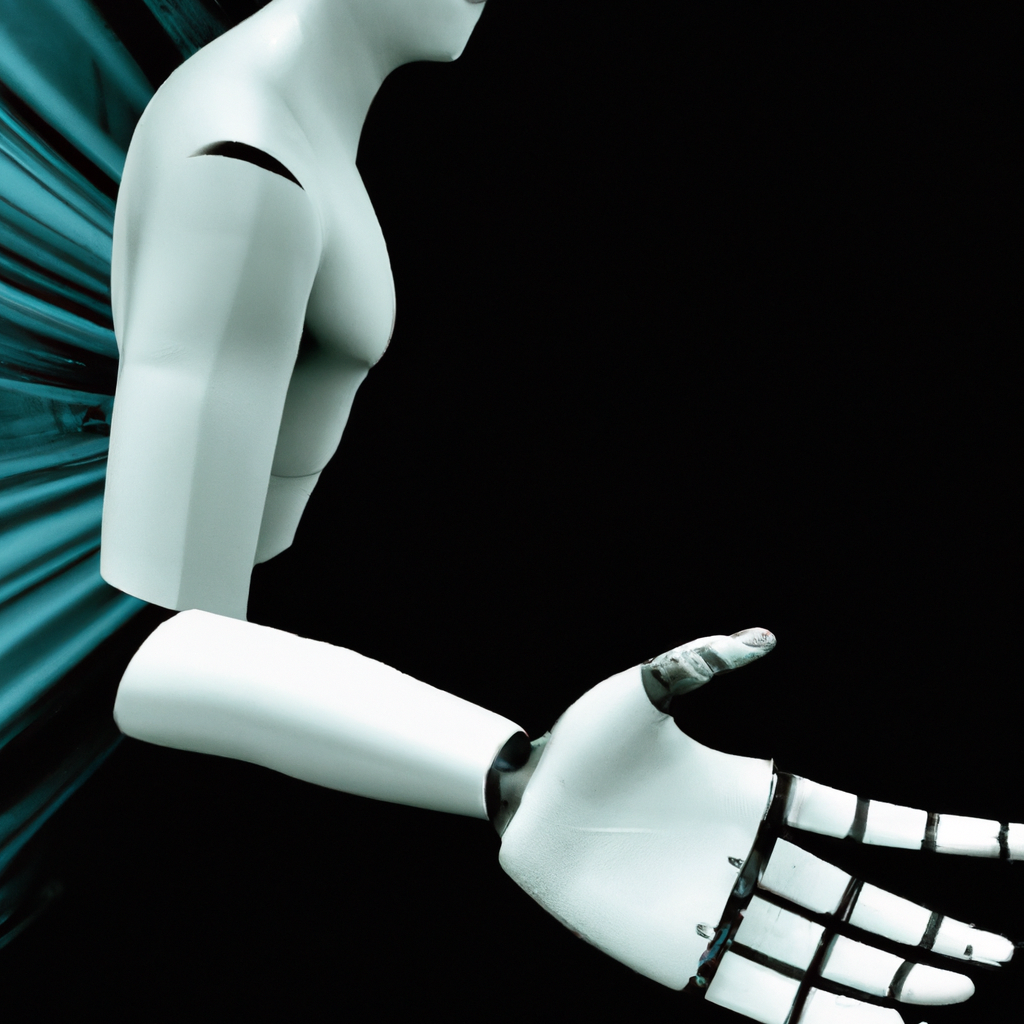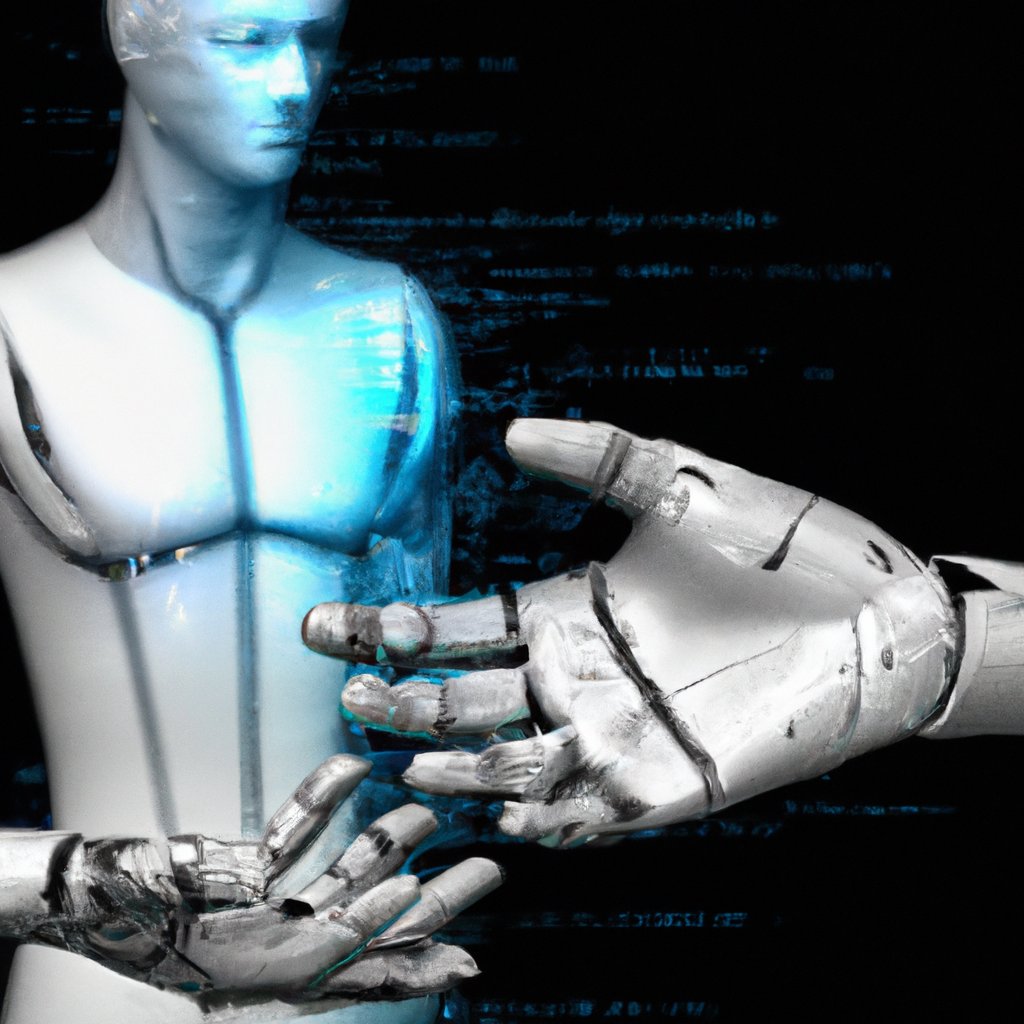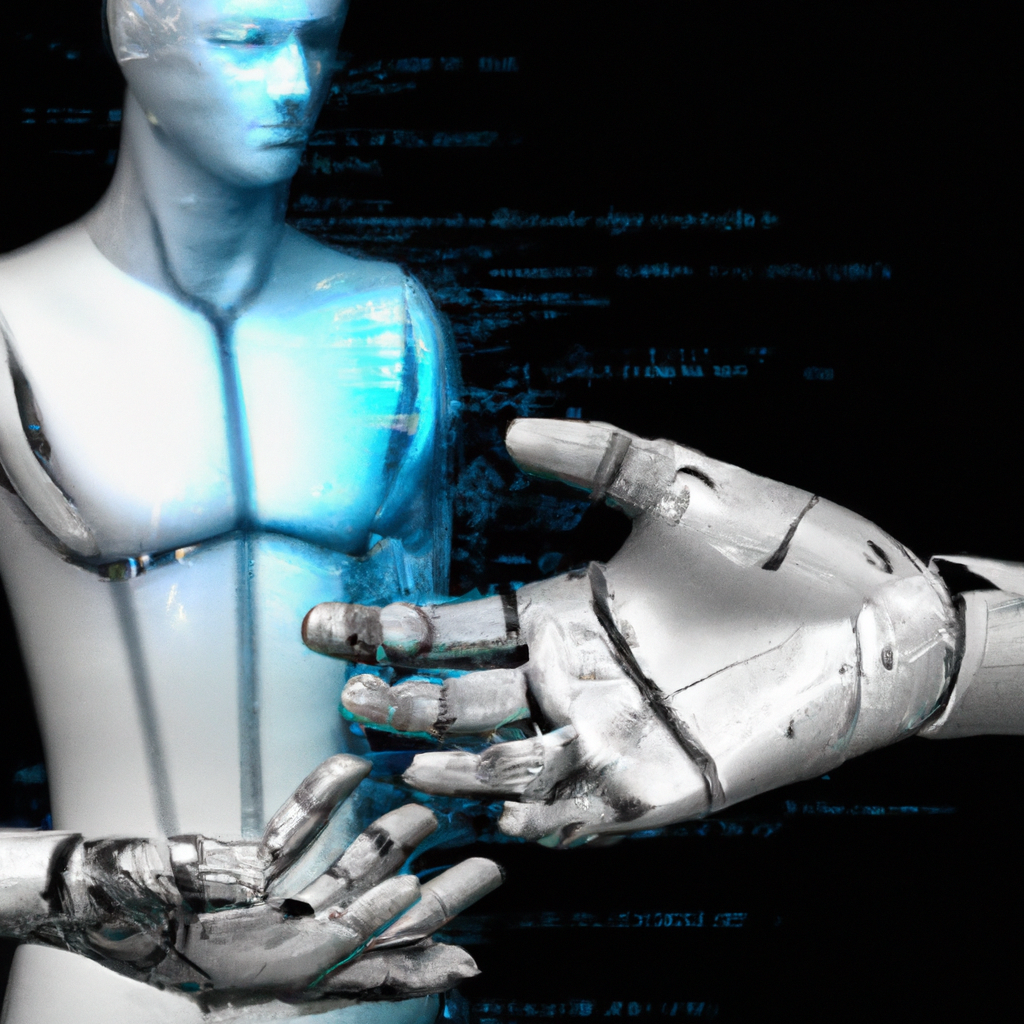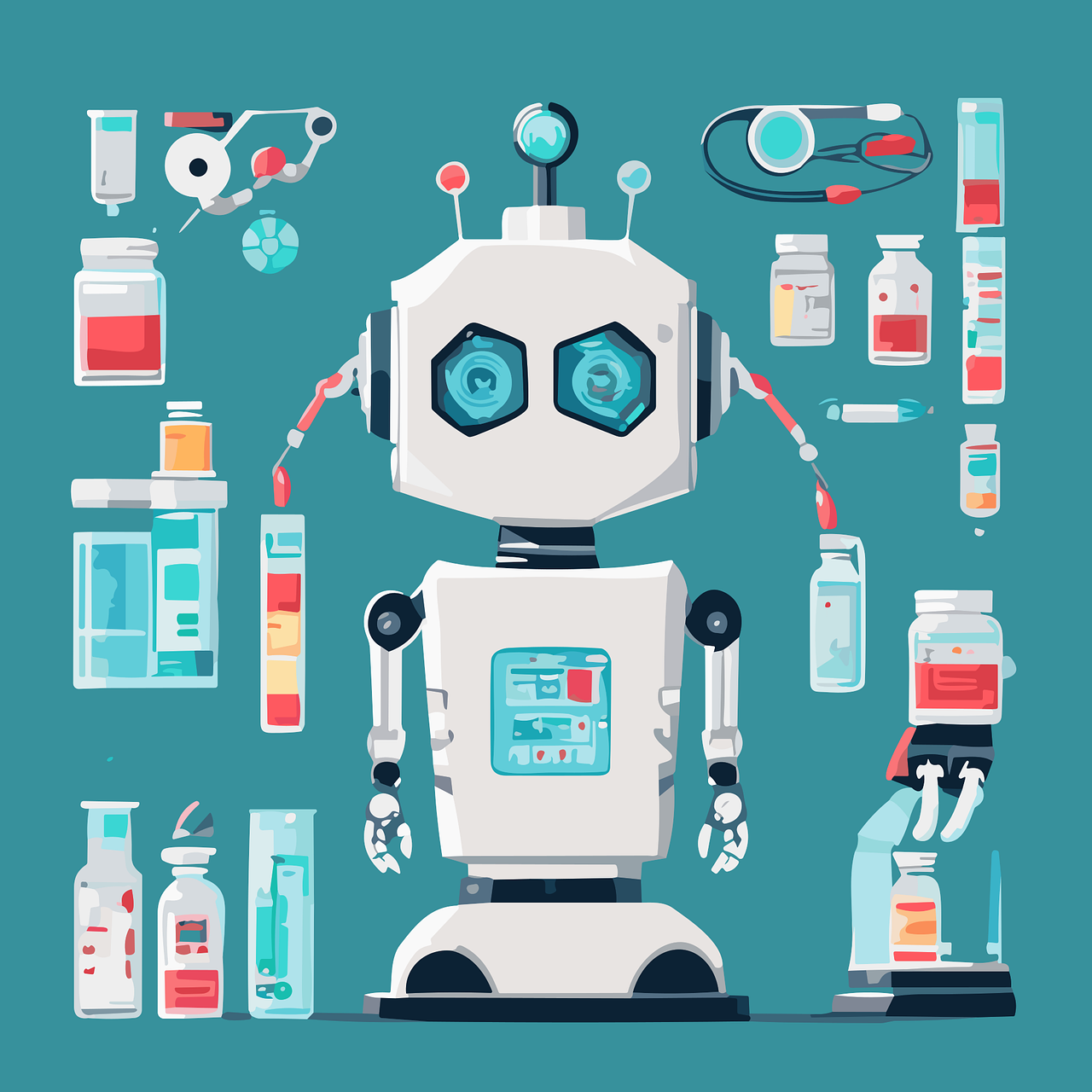Imagine a world where machines have the ability to make ethical decisions. A world where artificial intelligence (AI) not only understands human values, but also applies a sense of morality to its actions. This concept, known as machine morality, is the latest frontier in AI development that has sparked widespread debate. As we explore the potential implications of machine morality on human decisions, it becomes clear that the ethical considerations and consequences surrounding this topic are of utmost importance. In this article, we will delve into the ethics of AI and examine how the introduction of machine morality could potentially shape our future.

Understanding the Basics of AI
Artificial Intelligence (AI) is a field of computer science that focuses on creating intelligent machines capable of performing tasks that normally require human intelligence. It involves the development and use of algorithms and models to enable computers to learn, reason, problem-solve, and make autonomous decisions.
Defining Artificial Intelligence (AI)
Artificial Intelligence can be broadly defined as the simulation of human intelligence in machines that are programmed to think and learn like humans. It encompasses a wide range of technologies and applications, including machine learning, natural language processing, computer vision, and robotics.
How AI Works: Machine Learning and Deep Learning
Machine learning and deep learning are two key components of AI that enable machines to learn from and adapt to data. Machine learning refers to the use of algorithms and statistical models that enable computers to improve their performance on a specific task without being explicitly programmed. Deep learning, on the other hand, is a subset of machine learning that focuses on creating neural networks with multiple layers to extract features and make predictions or decisions.
The Extent of AI Capabilities Today
While AI has made significant advancements in recent years, it is important to note that the current capabilities of AI are still limited compared to human intelligence. AI systems excel in specific tasks such as image recognition, natural language processing, and playing games like chess or Go. However, they often lack the general intelligence and understanding that humans possess. AI is currently at the stage of narrow or weak AI, which means it can only perform specific tasks for which it has been trained or programmed.
Unraveling Machine Morality
As AI continues to advance, questions surrounding machine morality have emerged. Machine morality refers to the ability of AI systems to make ethical decisions and act in a morally acceptable manner.
Defining Machine Morality
Machine morality can be seen as the capacity of AI systems to understand and adhere to moral principles, understand the consequences of their actions, and make decisions that align with human moral values. It involves imparting ethical principles to machines so they can navigate complex moral dilemmas and make ethical decisions.
Current Stance of AI Ethics
The field of AI ethics is still in its early stages, and there is ongoing debate about the ethical implications of AI systems. Various ethical frameworks have been proposed to guide AI development and ensure the responsible use of AI. However, there is no consensus on what ethical principles should govern AI, and different stakeholders hold different perspectives on the matter.
Potential for Morality in Machines
While machines may lack the emotional capacity and intuition that humans possess, there is potential for AI systems to be equipped with a form of morality. By programming machines with moral principles and rules, it is possible to create AI systems that can evaluate ethical dilemmas and make decisions that align with human values. However, the implementation of machine morality raises complex issues that need to be addressed, including the definition of moral principles and the potential for bias in AI systems.
AI’s Ethical Considerations
The rise of AI has brought about various ethical considerations that need to be addressed to ensure its responsible development and use. These considerations span areas such as transparency, privacy, autonomy, and accountability.
Issues of Transparency
Transparency in AI refers to the ability to understand how AI systems make decisions and the underlying processes involved. It is essential for users and stakeholders to have visibility into the algorithms, data, and models used by AI systems, as this can help identify biases, errors, or discriminatory outcomes. Ensuring transparency is crucial to building trust in AI and managing potential ethical issues.
Concerns about Privacy and Data Security
AI systems often rely on vast amounts of data to learn and make decisions. This raises concerns about privacy and data security, as personal information may be collected, stored, and used without individuals’ consent or knowledge. Safeguarding privacy and ensuring secure handling of data are crucial aspects of AI ethics to protect individuals’ rights and prevent misuse of personal information.
The Debate about Autonomy and Free Will
AI systems have the potential to make autonomous decisions and take actions without human intervention. This raises questions about the extent of autonomy AI should have and the implications for human agency and free will. Striking the right balance between AI autonomy and human control is a significant ethical challenge that needs to be addressed.
The Question of Accountability and Responsibility
When AI systems make decisions or take actions, the question of accountability and responsibility arises. Who is responsible for the consequences of AI decisions? Should it be the developers, the users, or the AI system itself? Determining accountability and establishing mechanisms for holding individuals or entities responsible for AI-related outcomes is crucial to ensure ethical practices and prevent harm.
Current Systems of AI Ethics
To address the ethical considerations and potential risks associated with AI, various regulatory frameworks and ethical guidelines have been developed at the national and international levels.
Existing Regulatory Frameworks for AI
Several countries have started to develop regulatory frameworks specifically tailored to AI. These frameworks aim to address issues such as transparency, accountability, privacy, and bias in AI systems. They provide a legal framework for the responsible development, deployment, and use of AI technologies, ensuring that ethical considerations are taken into account.
Current Ethical Guidelines in AI Development
Various organizations and professional bodies have also developed ethical guidelines for AI development and use. These guidelines provide principles and recommendations for responsible AI practices, emphasizing transparency, fairness, accountability, and privacy. They serve as a reference for developers, policymakers, and other stakeholders to ensure that AI is developed and used ethically.
Role of Government and Private Entities
Both government and private entities have a critical role to play in promoting ethical AI practices. Governments can establish regulatory frameworks, enforce ethical guidelines, and foster collaboration between stakeholders. Private entities, on the other hand, have a responsibility to prioritize ethical considerations in their AI development efforts and ensure that AI-based products and services align with ethical principles.

Case Studies of AI Ethics Missteps
Despite efforts to promote ethical AI, there have been notable failures and missteps in the field. Analyzing these case studies can help identify the consequences of unethical AI practices and highlight areas for improvement.
Identifying Notable Failures of AI Ethics
One example of an AI ethics failure is the case of biased facial recognition systems. Several studies have shown that facial recognition technologies have higher error rates for certain demographic groups, such as women and people with darker skin tones. This highlights the ethical issues of bias and discrimination in AI systems and the need for more inclusive and diverse datasets.
Analyzing Consequences of these Missteps
The consequences of AI ethics missteps can range from biased outcomes and unfair treatment to infringements on privacy and security. Biased AI systems can perpetuate inequalities and discrimination, leading to social, economic, and legal implications. Moreover, unethical AI practices can erode public trust, hinder adoption, and impede the realization of the potential benefits of AI.
Learning from Past Mistakes with AI Ethics
Analyzing past mistakes is crucial for learning and improving ethical AI practices. It highlights the importance of addressing biases, ensuring transparency, and actively involving diverse perspectives in AI development. By taking lessons from these missteps, developers, policymakers, and stakeholders can work towards building more ethical AI systems that benefit society as a whole.
AI’s Impact on Human Morality and Decision Making
As AI technologies continue to advance, they have the potential to shape and challenge human morality and decision-making processes.
How AI Decision-Making Influences Human Choices
AI systems can assist and augment human decision-making processes by providing insights, predictions, and recommendations. For example, AI algorithms can analyze large datasets to identify patterns and trends, enabling individuals and organizations to make more informed decisions. However, reliance on AI for decision making raises questions about human agency and the potential for abdicating responsibility to machines.
Perspective on AI’s Ability to Challenge and Shape Morals and Ethics
AI’s ability to process vast amounts of data and identify patterns can influence human morals and ethics. For instance, AI systems can be programmed to promote certain behaviors or preferences, potentially shaping societal values and norms. This raises concerns about the potential manipulation of human morals and the need to ensure that the values embedded in AI systems align with ethical principles.
Will AI Improve or Worsen Human Decision Making?
The impact of AI on human decision making is a topic of ongoing debate. While AI can enhance decision making by augmenting human abilities, there are concerns that excessive reliance on AI may erode critical thinking skills and ethical judgment. Striking a balance between leveraging AI’s capabilities and preserving human judgment is essential to ensure that AI enhances, rather than replaces, human decision making.

Economic and Social Impacts of AI Morality
The integration of ethical considerations into AI has implications for the economy and society at large. Understanding these impacts is crucial for shaping policies and practices that address potential economic and social challenges.
Economic Repercussions of Self-Regulated AI Ethics
Ethical AI practices can have positive economic impacts by fostering trust and enhancing the adoption of AI technologies. Responsible AI practices can help build public confidence, attract investments, and stimulate innovation. On the other hand, unethical AI practices can lead to reputational damage, legal liabilities, and economic losses. Thus, self-regulation and adherence to ethical guidelines can contribute to the long-term economic sustainability of the AI industry.
Potential Societal Changes Stemming from Machine Morality
The integration of AI morality has the potential to shape societal values and norms, potentially influencing social behavior and interactions. For example, AI systems with built-in moral rules can contribute to safer and more inclusive environments. However, it is crucial to ensure that the values embedded in AI align with universally accepted ethical principles and do not perpetuate biases or discrimination.
The Future of Ethics in AI
As AI continues to advance, the future of ethics in AI holds both opportunities and challenges. Anticipating and addressing these developments is essential to shape an AI-driven future that is ethically aware and aligned with human values.
Potential Developments in Machine Morality
Advancements in AI, particularly in the areas of machine learning and deep learning, may lead to machines with a higher level of moral reasoning and decision-making capabilities. As AI systems become more sophisticated, they may be able to navigate complex ethical dilemmas, consider multiple perspectives, and make more nuanced moral judgments. However, achieving such capabilities requires ongoing research and development, as well as careful consideration of the potential risks and limitations.
Foreseen Challenges in Instilling Ethics into AI
Instilling ethics into AI systems poses several challenges. One of the key challenges is defining a universal set of ethical principles that can guide AI development and use. Ethics can vary across cultures and societies, making it challenging to establish a one-size-fits-all approach. Additionally, addressing concerns such as bias, transparency, and accountability requires interdisciplinary collaboration and ongoing dialogue among AI developers, ethicists, policymakers, and other stakeholders.
How Human Morality Might Evolve in Response
The interaction between AI and human morality is a dynamic process. The increased integration of AI in various aspects of society may lead to shifts in human values and ethics. Humans may need to adapt and evolve their moral frameworks to coexist and interact effectively with AI systems. This necessitates ongoing reflection, collaboration, and dialogue to ensure that human morality continues to serve as a guiding principle in an AI-driven world.

Possible Solutions for Ethical AI
Effectively addressing ethical concerns in AI requires a multi-faceted approach that involves legislation, multidisciplinary collaboration, and public engagement.
The Role of Legislation in Governing AI Ethics
Legislation plays a crucial role in setting ethical standards and requirements for AI development and use. Governments can establish laws and regulations that promote transparency, accountability, and fairness in AI systems. By providing a legal framework, legislation can help create a level playing field, protect individuals’ rights, and ensure responsible AI practices.
Potential of Multidisciplinary Approach in AI Ethics
Addressing AI ethics requires a multidisciplinary approach that brings together experts from various fields, including computer science, philosophy, psychology, law, and sociology. Collaboration among these disciplines can help identify ethical issues, develop frameworks for ethical AI, and ensure that AI systems are aligned with broader societal values and goals. The integration of diverse perspectives is essential to avoid bias and ensure that AI is designed and used in an ethical and inclusive manner.
The Importance of Public Engagement in AI Morality
Public engagement and dialogue are crucial for shaping the ethical development and use of AI. By involving the public in discussions about AI ethics, policymakers and developers can gain insights into public values, concerns, and expectations. Public engagement can also help increase awareness and understanding of AI, foster trust, and create a sense of ownership and responsibility among individuals and communities.
Conclusion: The Intersection of AI and Morality
The integration of ethics into AI is a complex and ongoing process. As AI technologies continue to advance, it is essential to prioritize ethical considerations to ensure responsible development, deployment, and use of AI. By addressing issues such as transparency, fairness, privacy, and accountability, we can build AI systems that align with human values and serve the best interests of society. With careful deliberation, multidisciplinary collaboration, and public engagement, the prospects for an ethically-aware AI future are within reach.











